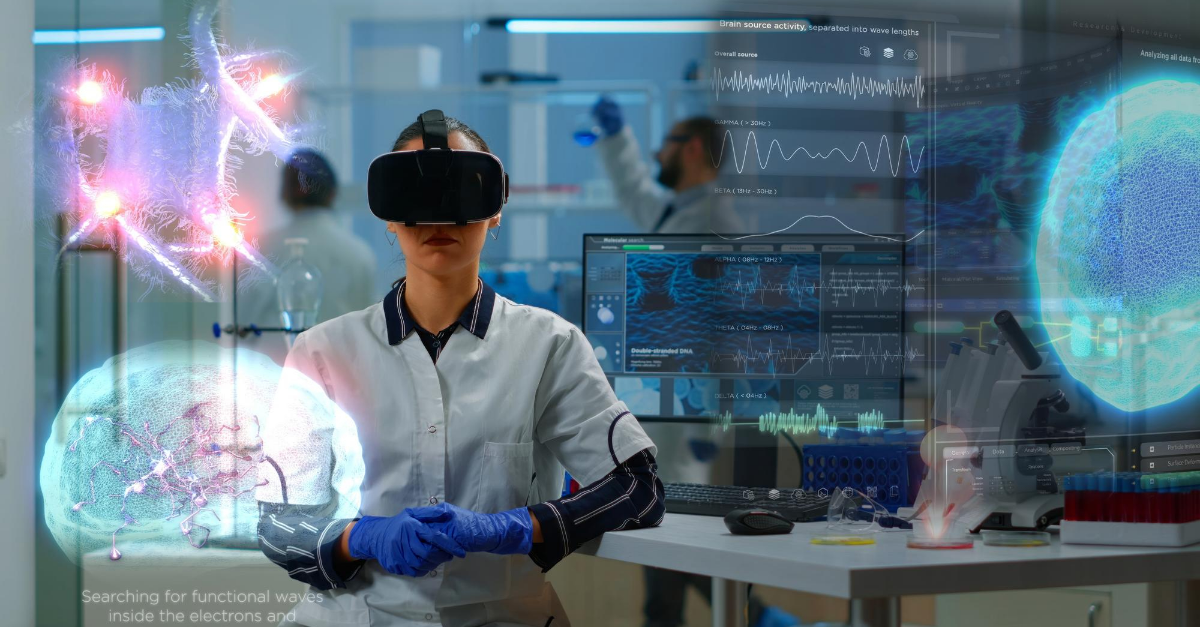Optimizing Healthcare: How AI is Cutting Costs and Enhancing Hospital Efficiency
- Sept. 30, 2024
In today’s healthcare landscape, hospitals face mounting pressure to deliver exceptional patient care while simultaneously managing escalating operational costs and complex workflows. Artificial Intelligence (AI) and data science are rapidly revolutionizing hospital operations, tackling these challenges head-on. A study by Accenture estimates that AI applications could save the U.S. healthcare system up to $150 billion annually by 2026. Hospitals adopting AI technologies are already gaining a competitive edge in both cost efficiency and care delivery.
But how exactly can AI streamline operations, cut costs, and maintain high-quality patient care?
Why AI Matters in Healthcare
AI is more than just a buzzword in healthcare—it's a transformative tool for hospitals aiming to enhance their operational effectiveness. A recent McKinsey survey found that 56% of hospitals using AI reported improved operational efficiency, while 45% noted a decrease in patient readmission rates. By integrating AI into healthcare systems, hospitals can make better decisions, optimize resources, and ultimately improve patient outcomes.
AI technologies, such as predictive analytics for forecasting patient demand and machine learning algorithms for staffing optimization, help hospitals streamline their workflows and make informed, data-driven decisions.
Real-World Examples of AI in Action
1. Predicting Patient Demand: Mount Sinai Health System The Mount Sinai Health System in New York harnessed AI-powered predictive analytics to anticipate patient admissions based on historical data, weather patterns, and local events. By forecasting patient surges, they could optimize staffing and resource allocation, reducing emergency room wait times by 50%. This shift from reactive to proactive management ensured that resources were efficiently deployed without overstaffing during low-traffic periods.
2. Reducing Patient Readmissions: Mayo Clinic A 2021 study by the Mayo Clinic demonstrated that AI-driven predictive models reduced patient readmissions by 30%. By identifying high-risk patients early on, the hospital was able to intervene sooner, resulting in more efficient use of resources and improved patient care.
These examples underscore AI's ability to drive significant operational improvements and enhance patient care.
Streamlining Hospital Workflows
Simplifying Routine Processes AI can simplify routine processes, allowing hospitals to run more smoothly. Natural Language Processing (NLP) algorithms can automate administrative tasks like managing patient records and scheduling appointments. According to Deloitte, AI-enabled automation can reduce hospital administrative costs by up to 20%. This allows staff to focus on tasks that directly impact patient care rather than being bogged down by paperwork.
For example, the UK’s National Health Service (NHS) uses AI to automate over 10 million appointment bookings annually, reducing administrative burdens and improving patient satisfaction. NLP tools also improve the accuracy and accessibility of medical records for healthcare professionals.
Smarter Resource Allocation
Optimizing Resource Utilization: St. Luke’s University Health Network Efficient resource management is crucial for balancing cost and care quality. St. Luke’s University Health Network in Pennsylvania utilized an AI platform to optimize resource allocation, reducing patient wait times by 40% and cutting operational costs by 25%. The system analyzes daily operational data to predict patient surges and match care needs with available staff, ensuring a balanced workload and improved patient outcomes.
AI-driven resource management not only reduces costs but also improves staff morale, as workloads are distributed more evenly.
Enhancing Operational Efficiency with AI Insights
AI's real-time insights help hospitals pinpoint and eliminate operational bottlenecks. For instance, the Cleveland Clinic implemented AI tools to analyze workflows, uncovering inefficiencies that led to $60 million in annual savings. These tools also improved patient throughput and reduced average discharge times by 12%.
Moreover, AI-assisted clinical decision-making enhances diagnosis accuracy. IBM Watson Health, employed by over 230 hospitals globally, provides doctors with real-time data analysis and treatment recommendations. According to the Journal of Medical Internet Research, hospitals using AI clinical decision support systems saw a 20% improvement in diagnostic accuracy.
Case Study: Stanford Health Care’s AI Success Story
Stanford Health Care improved supply chain and resource management through AI. The implementation of an AI-based system that analyzed historical and real-time usage patterns led to a 15% reduction in operating room (OR) supply costs, saving approximately $3.5 million annually. Additionally, AI's ability to predict surgical cancellations reduced last-minute schedule changes by 25%, boosting patient satisfaction and enhancing operational efficiency.
The Future of Hospital Operations
AI and data science have evolved from being optional tools to essential components for hospital success. Institutions that integrate these technologies are already witnessing substantial improvements: enhanced patient care, reduced operational costs, and streamlined workflows.
The future of healthcare will be shaped by those who harness AI and data science to address operational challenges. At Discovery Partners, we are committed to helping hospitals navigate this transformation, ensuring they are equipped to meet the demands of tomorrow while excelling today.
Want to know more about how we could help you harness the power of AI to meet your unique needs? Reach out to us today! We're excited to explore the possibilities and tailor our solutions to bring your vision to life. Let's innovate together!
